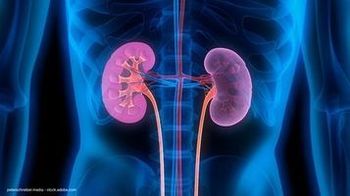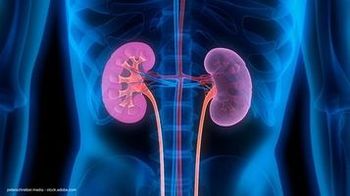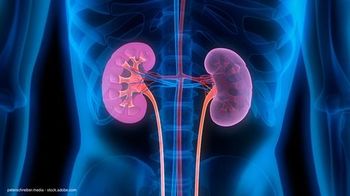
New targeted therapy appears effective in advanced PCa
The experimental drug MDV3100 shows promise for the treatment of men with castration-resistant prostate cancer, researchers from Memorial Sloan-Kettering Cancer Center, New York, reported in a recently published study.
The experimental drug MDV3100 shows promise for the treatment of men with castration-resistant prostate cancer, researchers from Memorial Sloan-Kettering Cancer Center, New York, reported in a recently published study.
According to the findings of the phase I-II study, MDV3100 not only shrank patients' tumors, but also reduced serum levels of PSA, stabilized disease that had spread to soft tissues and bone, and reduced the number of circulating tumor cells in the blood.
"We were encouraged to see antitumor activity in men whose disease had spread to other parts of the body after either becoming resistant to previous hormone treatments or progressing following chemotherapy," said lead author Howard Scher, MD. "These findings strengthen the drug’s potential to change the outlook for a group of patients who currently have limited effective treatment options from which to choose."
MDV3100 works by blocking testosterone from binding to the androgen receptor, stopping the movement of the androgen receptor to the nucleus of prostate cancer cells, preventing the receptor from binding to DNA, and inducing cancer cell death, even when the expression of the androgen receptor is elevated.
In the current study, which was published online in The Lancet (April 14, 2010), 140 patients were treated with doses of MDV3100 ranging from 30 mg to 600 mg daily. Positron emission tomography imaging, bone scans, and blood tests were used to assess the antitumor effects of the drug, which were observed at all dosages. Investigators reported declines in PSA of at least 50% in more than half of the patients and tumor regressions in 22% of the patients. Overall, two-thirds of patients had partial remissions or stable disease in tumors that had spread to soft tissue or bone.
The findings also showed that the number of circulating tumor cells fell in 49% of patients, and 91% of patients who initiated therapy with favorable counts retained favorable counts during treatment.
Newsletter
Stay current with the latest urology news and practice-changing insights — sign up now for the essential updates every urologist needs.





